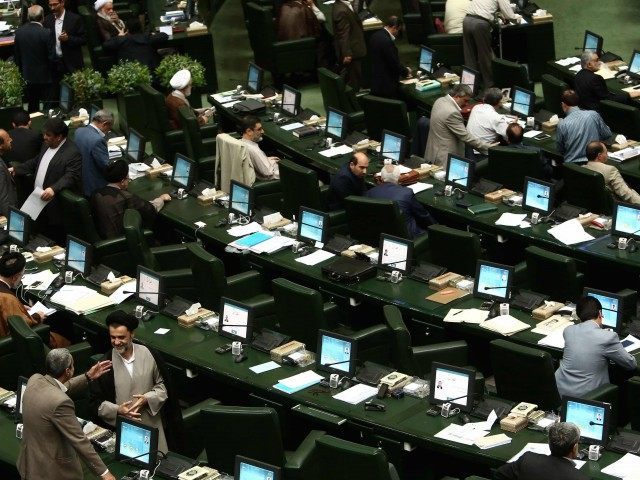While the UN Security Council passed the Iran deal in a unanimous 15-0 vote on Monday, Iran’s parliament, the Islamic Constituent Assembly, or Majlis, holds the power to revise or delay key parts of the nuclear deal with Iran–even as President Barack Obama and world powers seek a UN Security Council resolution before the U.S. Congress can review the deal.
On Saturday, the Fars News Agency reported that the Majlis threatened to reject the agreement’s provision on ballistic missiles, which call for an international embargo on missile technology to be extended for eight years–a significant, last-minute concession by the U.S.
Iran wants unrestricted ballsitic missile development and access to conventional arms dealers abroad.
“The parliament will reject any limitations on the country’s access to conventional weapons, specially ballistic missiles,” said Tehran MP Seyed Mehdi Hashemi.
In addition, the nuclear deal says that the Majlis will ratify the Additional Protocol (AP) to the Non-Proliferation Treaty–but it does not say when.
The AP is the key to long-term monitoring of Iranian nuclear research and development by the International Atomic Energy Agency (IAEA). Without approval of the AP, Iran may hide key information about its nuclear activity, and may accelerate advanced centrifuge research immediately when the nuclear deal expires, among other hazards. (Even then, its commitments under the AP will be somewhat voluntary.)
The Center for Arms Control and Non-Proliferation asserts that the inclusion of the AP in the Iran deal should reassure critics:
While some aspects of the Additional Protocol are present in the Joint Comprehensive Plan of Action, (monitoring fissile material stockpiles from cradle to grave, inspections, information regarding fuel cycle research), the signing of the Additional Protocol represents the continuation of these monitoring and verification provisions long after the comprehensive agreement between the P5+1 and Iran is implemented. Those who are worried that Iran will bide time and wait to build a bomb after the deal has phased out should take comfort in the increased access to facilities (both declared and not) and information provided in perpetuity by the IAEA’s Additional Protocol.
However, there is no guarantee that the AP will be ratified.
Moreover, as the Business Insider notes, while the interim agreement of Nov. 2013 provided that Iran would ratify the AP within one year, there is no such deadline in the final Iran deal. The AP is merely to be applied “provisionally,” while the Majlis decides whether to accept it or not.
Meanwhile, if the Obama administration has its way, the U.S. Congress will have no opportunity to amend the deal–and will have to accept the lifting of international sanctions regardless of whether legislators accept or reject the agreement.
Updated to reflect UN Security Council vote.

COMMENTS
Please let us know if you're having issues with commenting.